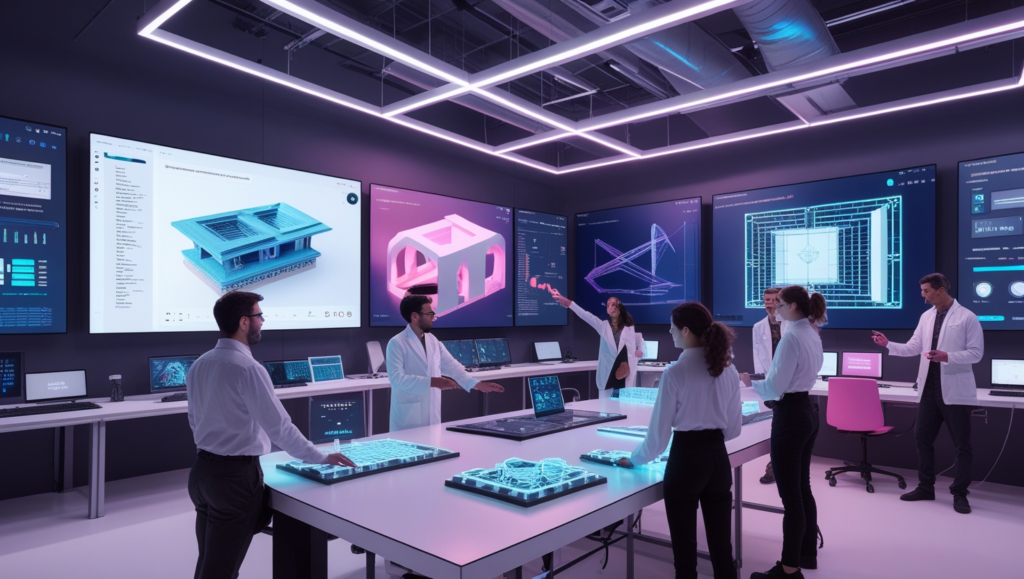The landscape of artificial intelligence continues to evolve at a remarkable pace, bringing transformative changes across various sectors. As we progress through this decade, several significant developments are shaping AI’s trajectory. This examination explores key forthcoming innovations while maintaining an accessible style for broad comprehension.
The Rise of Independent AI Systems
A prominent evolution involves the advancement of self-sufficient AI mechanisms capable of operating with minimal human oversight. These sophisticated systems demonstrate growing competence in managing complex responsibilities across multiple domains. In corporate environments, such technology now handles customer interactions, coordinates schedules, and assists with financial operations.
This shift toward automation presents both opportunities and considerations. While these systems enhance productivity by assuming repetitive duties, they simultaneously allow human professionals to dedicate attention to creative and strategic initiatives. Current challenges center on refining decision-making accuracy and establishing reliable oversight protocols to ensure optimal performance.
Expanding Capabilities of Creative AI
The progression of generative artificial intelligence represents another noteworthy development. Moving beyond text generation, these systems now demonstrate proficiency in producing visual content, audio synthesis, and three-dimensional modeling. Emerging applications in media production suggest potential transformations in advertising, entertainment, and educational content creation.

Within scientific fields, these technologies contribute to pharmaceutical research and medical diagnostics. Engineering disciplines benefit from enhanced modeling capabilities for structural and product design. As these tools become more prevalent, emphasis shifts toward customization for specialized industry requirements rather than general functionality.
Enhanced Cognitive Functions in AI
Contemporary advancements indicate substantial improvements in artificial reasoning capabilities. Modern systems exhibit growing aptitude for addressing sophisticated challenges in legal, medical, and technical domains. These developments facilitate applications ranging from complex mathematical computations to programming assistance and legal documentation analysis.
Supporting infrastructure continues to evolve in parallel, with specialized processing units designed specifically for artificial intelligence applications. Leading technology firms invest in dedicated hardware solutions to optimize performance and energy efficiency. Concurrent research explores potential synergies with quantum computing, which may dramatically accelerate computational processes in future implementations.
Governance and Ethical Considerations
The expanding influence of artificial intelligence necessitates corresponding developments in regulatory frameworks. Policymakers globally engage in establishing guidelines addressing data security, algorithmic transparency, and workforce implications. Industry leaders increasingly prioritize explainable AI systems that provide clear rationales for automated decisions.
Current regulatory initiatives aim to balance innovation with responsible implementation. These efforts focus on preventing misuse while encouraging beneficial applications. Ongoing dialogues address concerns regarding information integrity, personal privacy protections, and equitable algorithmic processes.
Integration into Daily Experiences
Artificial intelligence transitions from specialized applications to commonplace integration. Domestic environments increasingly incorporate intelligent systems for household management and personal assistance. Educational applications demonstrate potential for customized learning experiences, while healthcare implementations show promise in early diagnostic support.
Wearable technologies with integrated intelligence provide continuous health monitoring and predictive analytics. Entertainment platforms utilize sophisticated recommendation algorithms to curate personalized content selections. This proliferation suggests a future where human-machine interaction becomes increasingly seamless and intuitive.
Potential Challenges and Mitigation Strategies
The widespread adoption of intelligent systems presents several considerations. Workforce adaptation remains a primary concern as automation transforms traditional employment structures. While new opportunities emerge, they often require different skill sets, necessitating comprehensive retraining initiatives.
Security implications represent another critical area, particularly regarding synthetic media and digital deception. Robust verification systems and cybersecurity measures become increasingly essential. Long-term considerations include maintaining alignment between advanced systems and human priorities, with ongoing research dedicated to ensuring beneficial outcomes.
Also Read: Final Fantasy XIV Patch 7.01 What’s New in This Update?
Concluding Perspectives
The ongoing development of artificial intelligence presents a complex interplay of technological potential and societal impact. Future progress will likely emphasize both capability enhancement and responsible implementation. Strategic approaches balancing innovation with thoughtful governance will prove crucial in maximizing benefits while addressing associated challenges.
As these technologies continue maturing, their influence across professional and personal spheres will undoubtedly expand. The coming years will prove instrumental in determining how these powerful tools integrate into our collective future, making present decisions particularly consequential for long-term outcomes.





